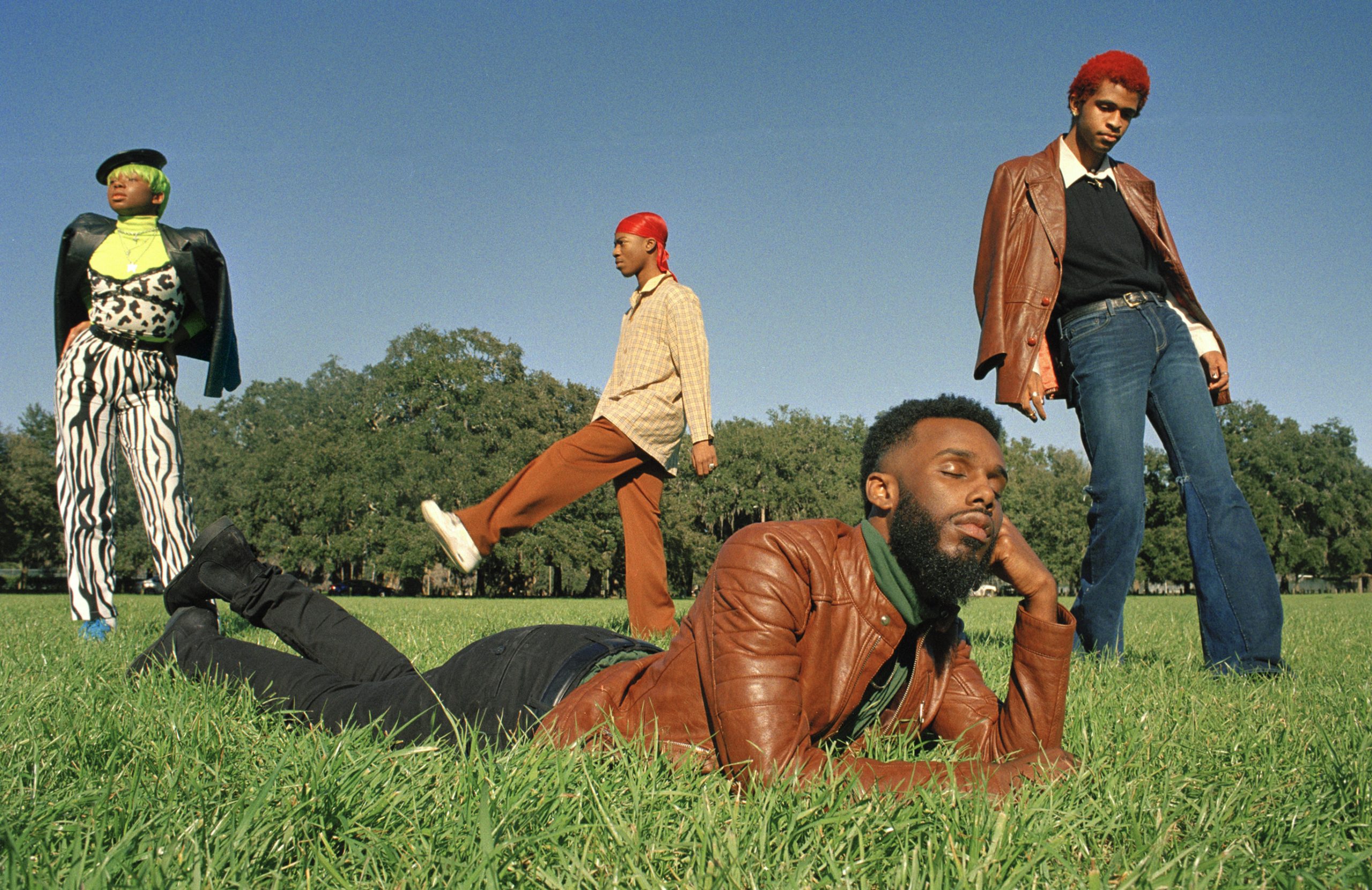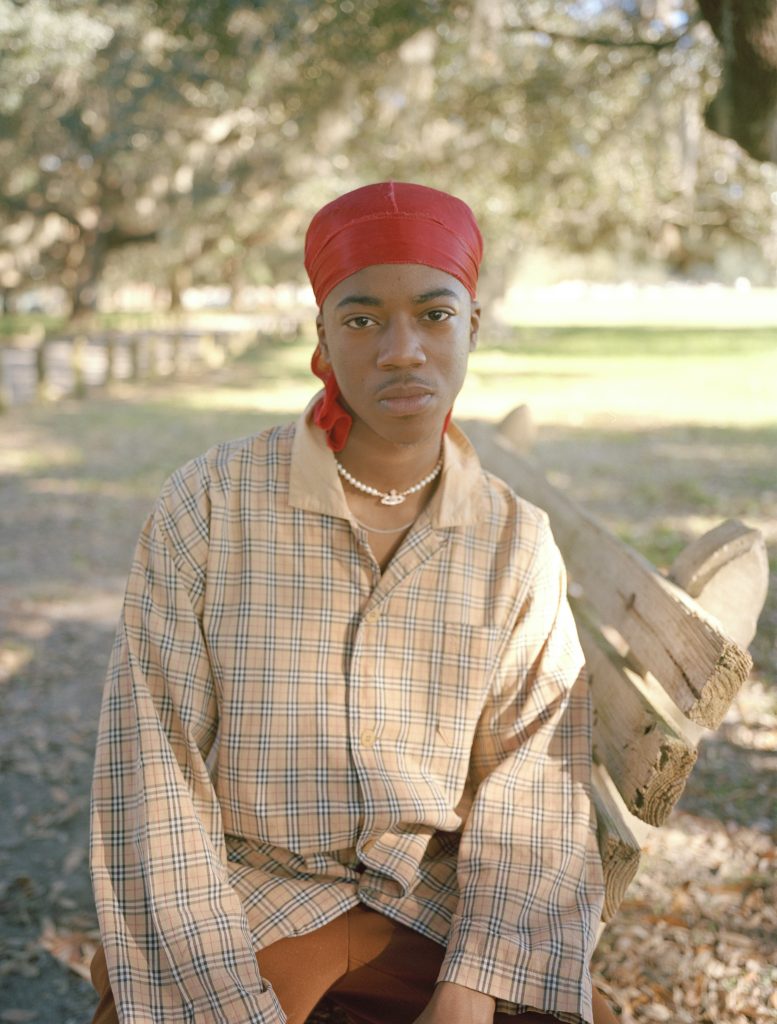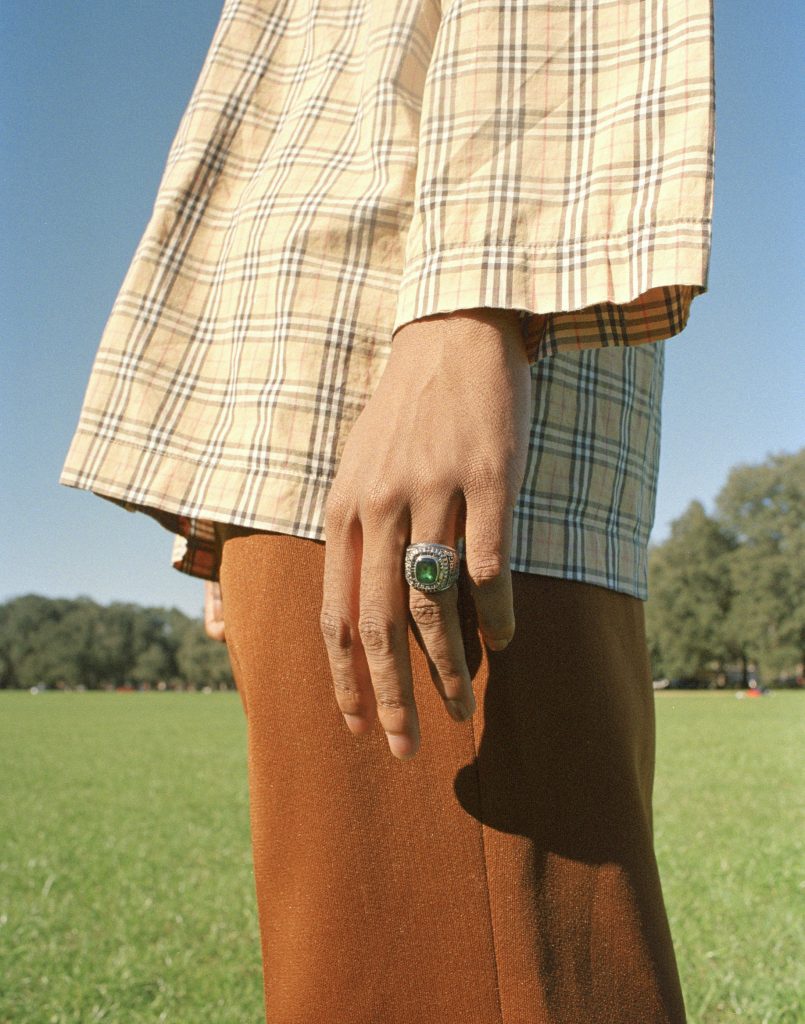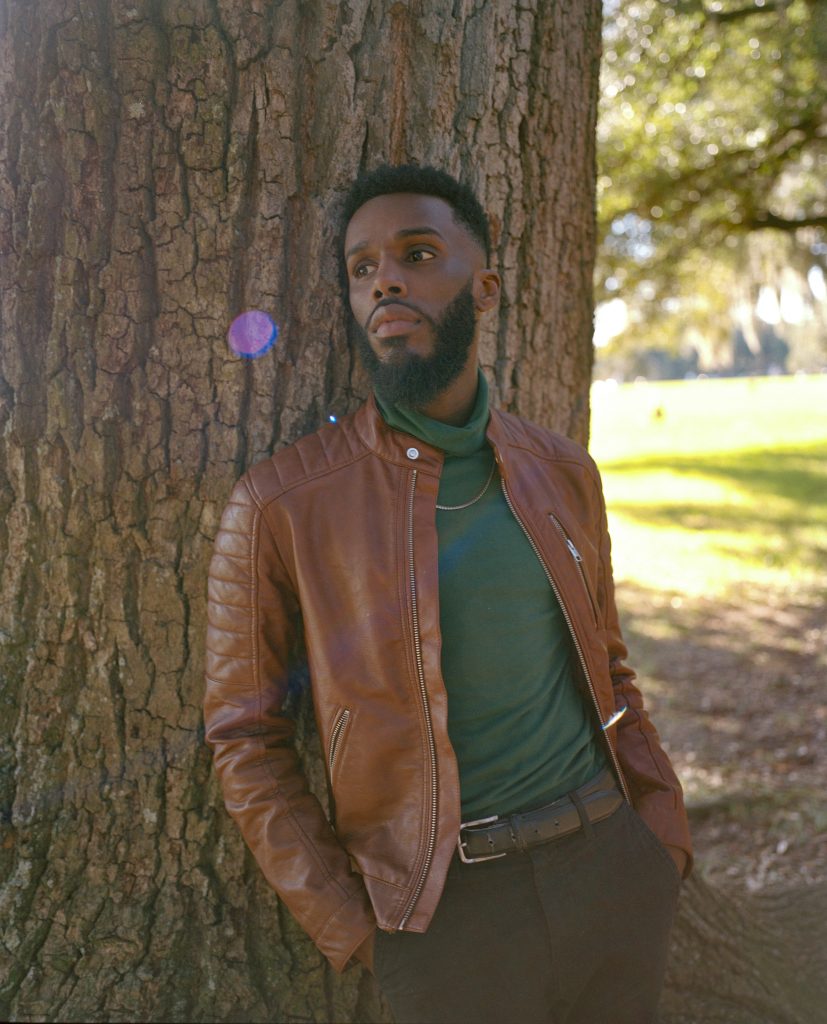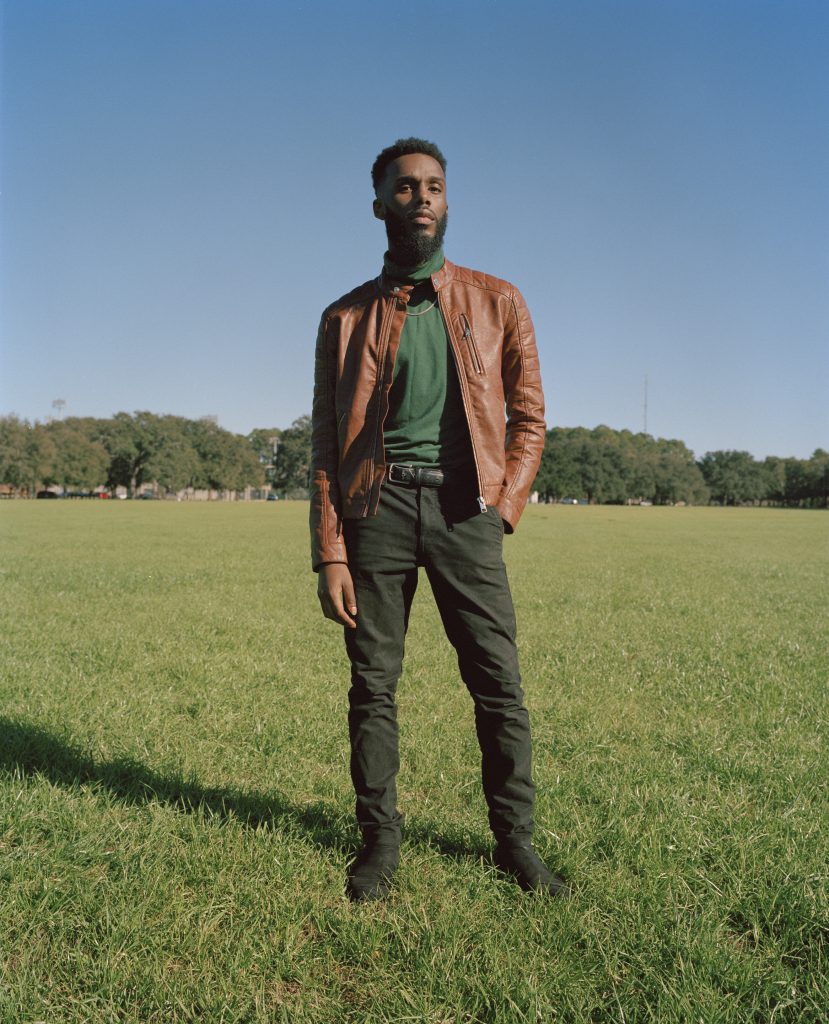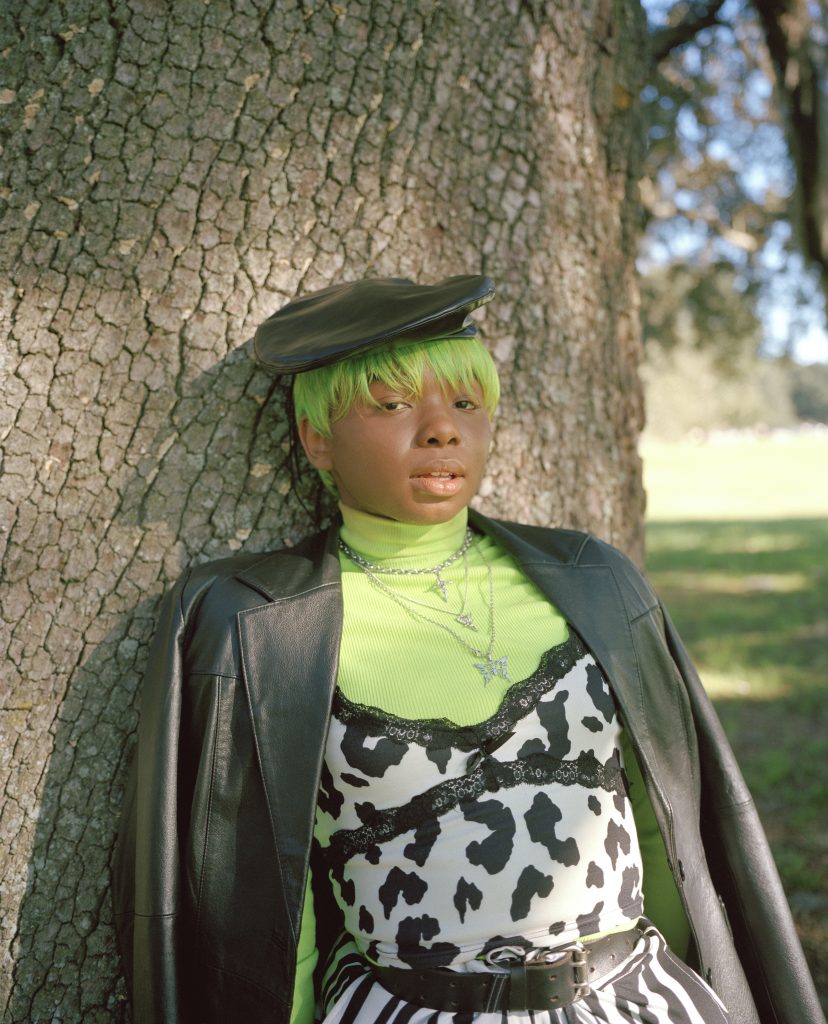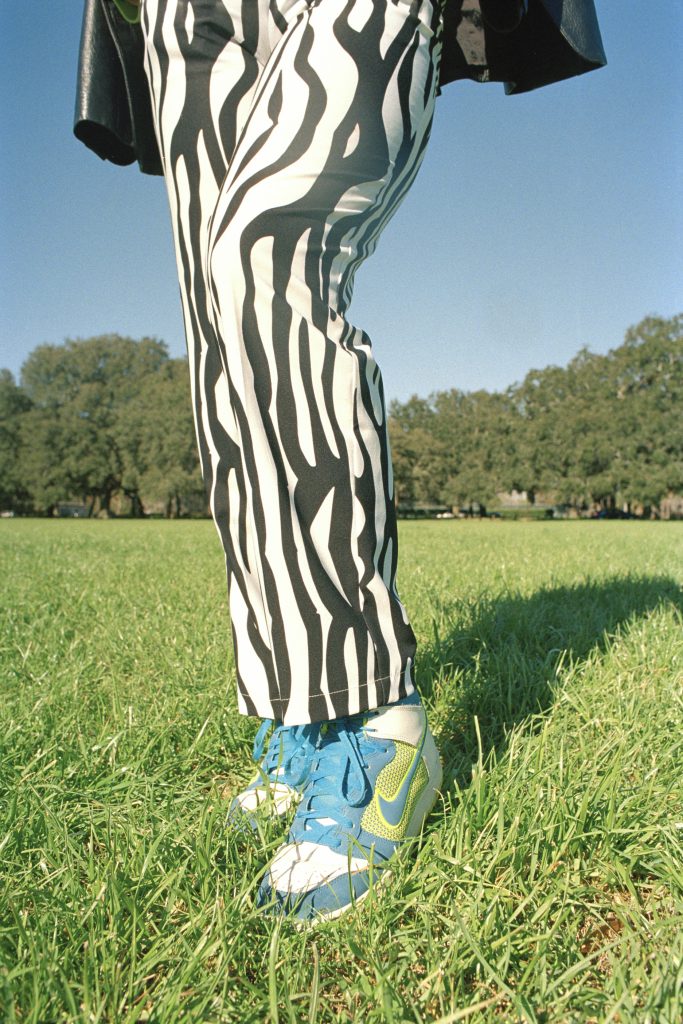The mainstream fashion industry is predominantly white, but there is a fascination with Black culture, fashion, and all aspects of being Black that has driven so many trends from fashion to catchphrases. Was the support truly genuine when we saw brands and powerhouse names stepping down after the racial tension events of summer 2020?
In conversation with four young Black creatives, we explore their thoughts on the intersection of fashion and being Black.
Eli Marshall, 18, Florida, Painter and Model
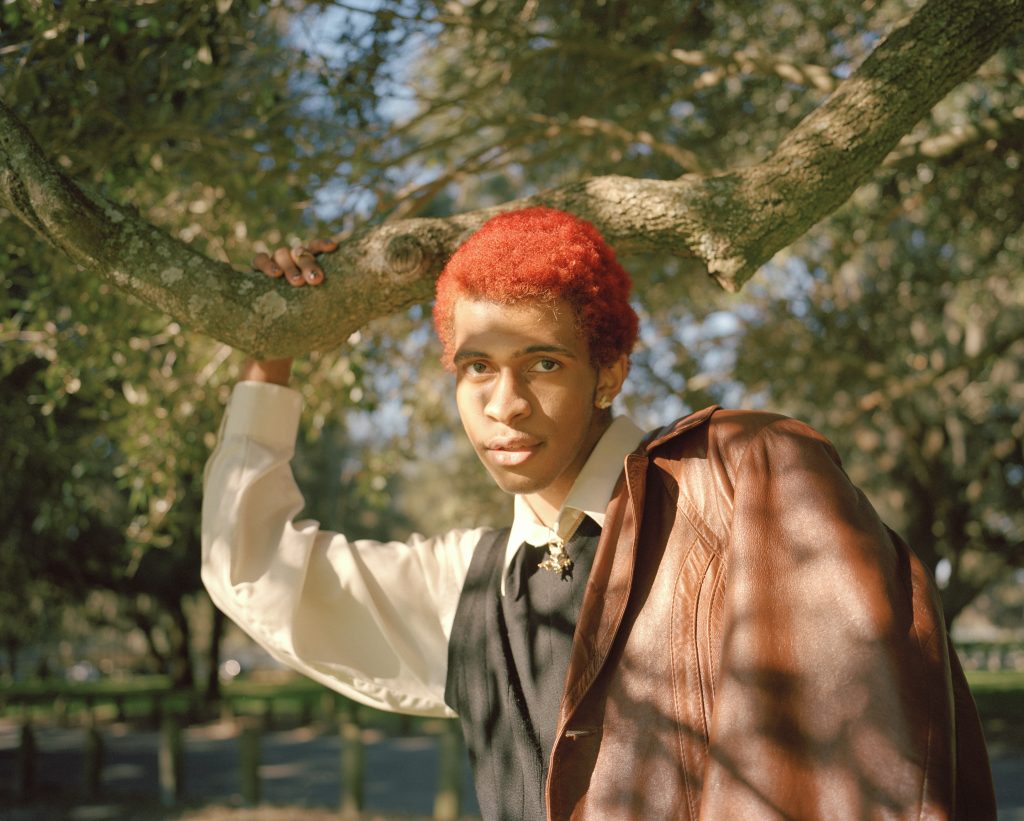
What are your creative goals?
I want to do everything and see everything, whether it is painting as a side gig or modeling, so I have the opportunity to travel. I want to do it all.
What is your style inspiration currently?
Regarding my style, I like to say that I pull inspiration from everywhere around me, but I enjoy the 70s and 80s era but with a modern twist.
The fashion industry loves Black culture, but do you think it is genuine?
In regards to trends started by Black people, I see it everywhere, and I’m like, wait a minute, didn’t we do that first? Especially with Y2K fashion, all these POC girl groups like TLC and Destiny’s Child were spearheading these trends, and I think we forget that they did it first. We should acknowledge where it came from.
Have you ever felt like you had to dim your Blackness down?
Just recently, I have become comfortable with expressing my black identity. When I was younger, I was afraid if I looked or acted too Black, that would negatively impact myself and how I would come off as an individual. I didn’t want to do stereotypical black stuff. But I am so happy that I’ve stepped out of the box that I put myself in. I can be whatever I want to be and however black I want to be.
Any piece of advice or final words?
Just be you and be willing to take risks out of your comfort zone. I feel like people get too comfortable with what they’re doing and wearing. Experiment and branch out; there’s no harm in doing that.
George Huff, 20, Georgia, Fashion Designer and Model
What are your creative goals?
I want to work for a major fashion house and have my own one day. I also hope to style celebrities one day as a side gig and work as a model.
What is your style inspiration currently?
I am very into streetwear, but I also like to add some feminine clothing into the mix. I pull inspired by colorful luxury cars and honestly anything that I look at.
The fashion industry loves Black culture, but do you think it is genuine?
I found it interesting when researching for a class that there’s a sector of Y2K called “cyber ghetto,” but there’s nothing “ghetto” about these trends; it’s just Black designers making baggy clothes.
Have you ever felt like you had to dim your Blackness down?
When I first got to SCAD, I didn’t see many African Americans. It was a culture shock. I called my mom and told her I needed to go back home. Every time I tried to act like I did back home, it was a weird reaction, and I just felt like I had to sit down in certain situations. But after the protests this summer, I have stopped caring about dimming down my Blackness. It is sad that it took those events for that to happen.
Any piece of advice or final words?
Be you. I always wanted to dress outside the norm of what was considered cool in high school, but being around close-minded people made me second guess myself. My best friend from back home inspires me. He used to dress like how Lil Uzi dresses now, and everyone thought he was so weird. But I’m very much happier now that I’m out of my shell, and I don’t care anymore. I like how fashion makes me and the people around me feel.
Cameron Mack, 22, Massachusetts, Motion Graphic Designer and Model
What are your creative goals?
I want to break into the entertainment industry and make motion graphic sequences, but I also see myself acting later in life like Hugh Jackman.
What is your style inspiration currently?
I would describe my aesthetic as a northern boy next door. I enjoy my layers, leathers, and silver metals.
The fashion industry loves Black culture, but do you think it is genuine?
I grew up in a suburban area my whole life, so I’m pretty much used to being one of the only Black guys in the room. But on set as a model, I’ve never felt like I was there just because I am Black. Every time, it’s intentional that each model is diverse.
Have you ever felt like you had to dim your Blackness down?
It’s interesting because I never had an identity crisis regarding what I chose to wear. I just sort of already knew what I liked. But being in a creative setting, I’ve expanded on the things I wear, and my battles are closer with my sexuality than being Black. There was a time where I was scared to explore my sexuality because of homophobia in the Black community, especially when I came out as a bisexual man. Overall, I understand that not everyone has to understand me, and that’s okay.
Any piece of advice or final words?
To my Black and Brown kings and queens, embrace your melanin.
Kyle Harris, 20, North Carolina, Performing Arts
What are your creative goals?
I want to be a multidisciplinary artist who partakes in everything, with no limitations in creative vision, expressing myself unadulterated fashion, acting, film, drawing, writing, amalgamated into one person.
What is your style inspiration currently?
I find inspiration in bright colors and mixing patterns of the 80s. I like to “bend what it means to be masculine and feminine. Just apply the wigs and wear the camisoles and corsets, wear heels sometimes, wear tennis shoes another. Wear bright colors that subvert expectations and bend the parameters.
The fashion industry loves Black culture, but do you think it is genuine?
When I hear the word ghetto thrown around with style, the first image that pops into my head is how people call dark skin girls’ ghetto’ but have a white girl who dyes her hair every week, is skinnier, and has a lighter complexion. It’s like, “oh, she is changing fashion,” she’s a “fashion icon.” These double standards are what undermines the influence of our culture.
Have you ever felt like you had to dim your Blackness down?
I grew up in a household where we were surrounded by music, food, country accents, and Black slang, but I was also taught to be kind, respectful, say yes ma’am, and yes sir no matter who it is. I guess that subconsciously I would switch between mannerism in school and at home.
Any piece of advice or final words?
Embrace your inner phoenix and allow yourself to deteriorate into your ashes. Talk about the unknown, your darkest thoughts, your deepest emotions, your rage, your fears you have with yourself, the world, your family, whoever. Then plant the seeds of who you want to be and water that with work. Nurture that, and then you will rise from those ashes and be fiery again.
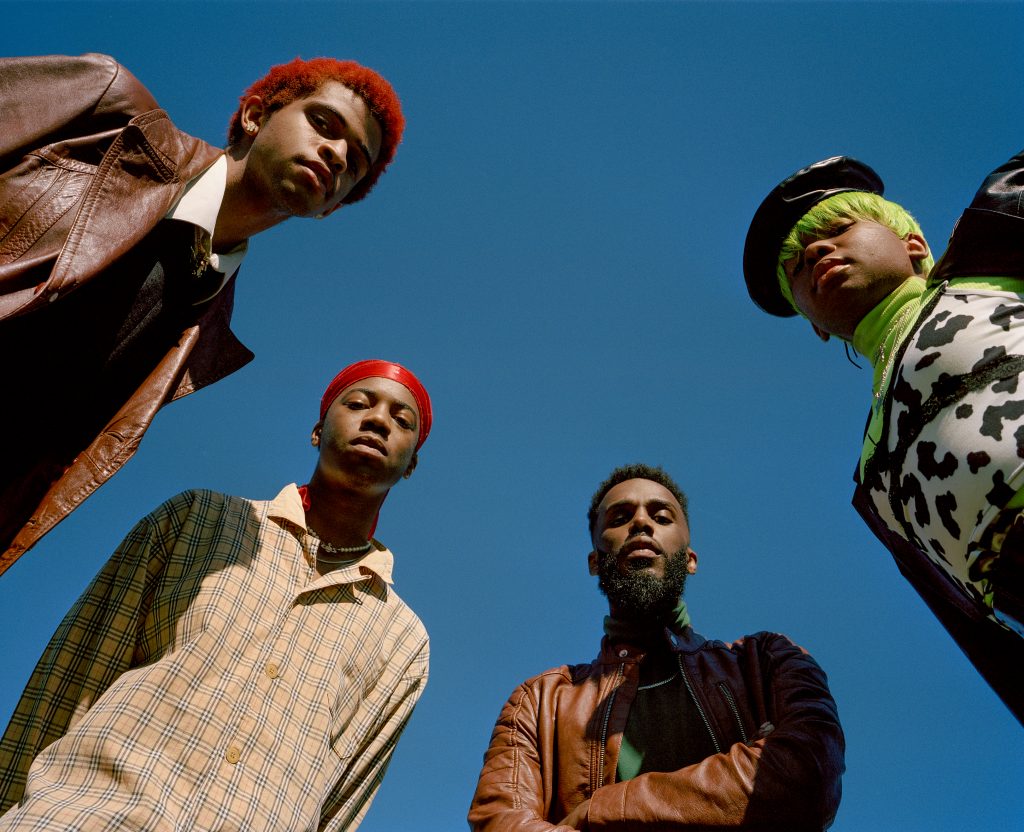
Interviews conducted by Daniela Guevara
Photography by Geoff Haggray
Talent is Eli Marshall, George Huff, Cameron Mack and Kyle Harris

